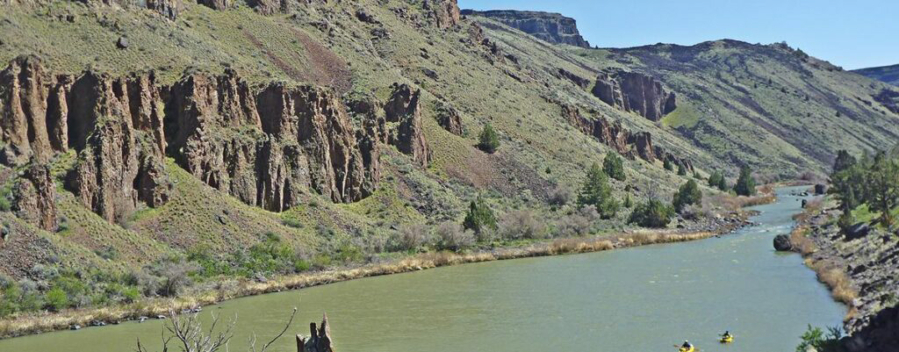More than 1 million acres of what’s often called “Oregon’s Grand Canyon” could be protected from wildfire and degradation if the state’s two U.S. senators can convince their peers in Congress to approve a new wilderness area.
On Wednesday, Sens. Ron Wyden and Jeff Merkley, both Democrats, proposed for the third time in four years the Malheur Community Empowerment for the Owyhee Act.
It would put more than 1.1 million acres of federal public lands in the Owyhee Canyonlands in Southeast Oregon and a 15-mile stretch of the Owyhee River under the protection of the National Wilderness Preservation System and the Wild and Scenic Rivers System. It would also transfer 30,000 acres of federal and private land into a trust overseen by the Burns Paiute Tribe.
The canyonlands have significant health, economic and cultural value to the Northern Paiute, Bannock and Shoshone tribes, according to a news release from Wyden. They are a source of tourism dollars in Malheur County, and are home to threatened sage grouse, as well as bighorn sheep, elk and deer. The animals and their habitats face growing risks from wildfire due to invasive grasses and juniper. Fish species in the Owyhee River face challenges from poorly preserved riparian areas and cattle grazing. While the area would be protected from overgrazing and some livestock permitting in the future, existing grazing activities on the 1.1 million acres would still be allowed.
The new protected wilderness area in the Owyhee Canyonlands would be managed for conservation and cattle grazing by the National Park Service, Bureau of Land Management, U.S. Fish and Wildlife Service, and U.S. Forest Service.
Wyden presented the latest iteration of the bill at a hearing of the Senate Subcommittee on Energy and Natural Resources, Public Lands, Forests, and Mining. The committee will vote on moving the bill forward at a yet-to-be-determined date, according to Hank Stern, a spokesperson for Wyden.
“We have a piece of legislation that preserves not just a treasured landscape for its beauty and ecological significance, but importantly, it preserves our agriculture culture and way of life for people who call it home,” Wyden told his colleagues at the hearing.
He and Merkley first proposed the bill in 2019, following requests from ranchers in the area for the senators to intervene in what had become prolonged debate among ranchers, conservationists, tribes, hunting and fishing groups and various agency officials over how to preserve parts of the 2.5 million-acre canyonlands. The first proposal failed to make it out of the U.S. Senate Committee on Energy and Natural Resources, as did a second attempt in 2022.
But this time, Wyden and stakeholders feel they have a winning bill. Wyden submitted to the committee at the Wednesday hearing a letter of support co-signed by southeast Oregon ranchers, conservationists, tribal leaders and small business owners in the area.
In the latest iteration of the bill, ranchers would not need to renew Bureau of Land Management grazing permits they now hold, nor undergo a new environmental review. The bill’s advocates said preserving the health of the landscape and river, along with building scenic loop roads, would boost economic development and tourism in Malheur County, drawing in more people interested in fishing, hunting and other recreation. The bill also would direct resources to improving state parks and firefighting efforts in the county.
A group of stakeholders, including representatives of state and federal agencies, ranchers, tribes and representatives from fishing industry and advocacy groups Trout Unlimited and the Northwest Sports Fishing Association, would continue to collaborate on and oversee conservation projects in the area.
“Not everybody has their dream bill, but it’s really an enormous step in the right direction for what all of us need,” said Liz Hamilton, executive director for the Northwest Sports Fishing Association. “There were huge concerns among all of us stakeholders over the fact that some of these lands — if we didn’t step in and intercede — would continue to degrade due to all sorts of things.”



